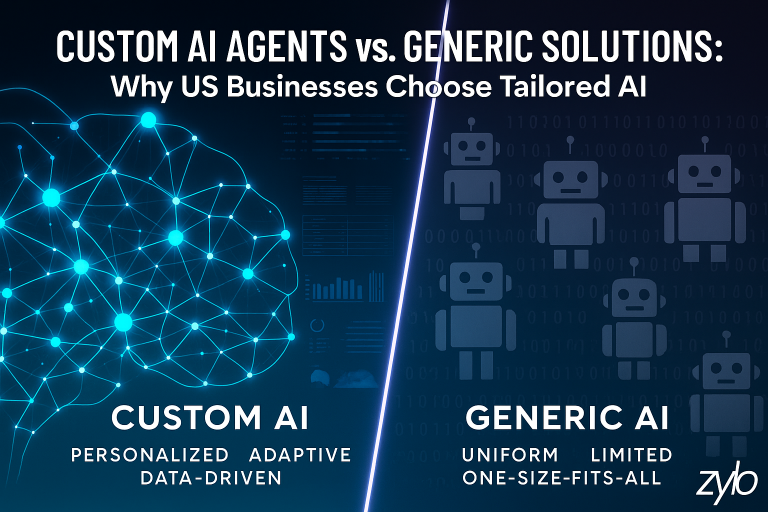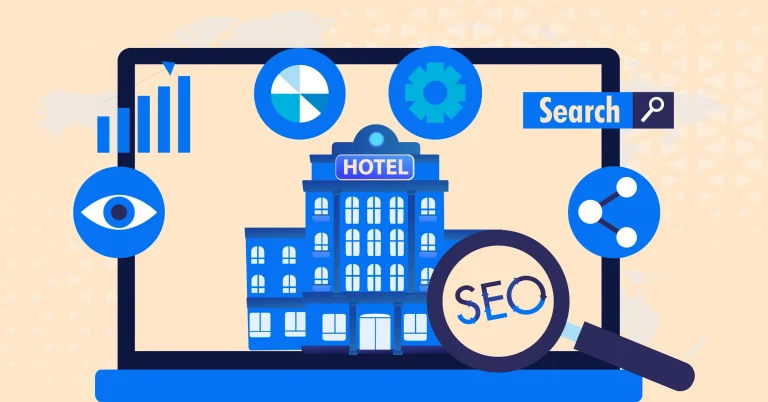How Enterprise Tech Solutions Are Redefining the Modern Business Landscape
In an age of digital acceleration, businesses across industries are undergoing massive transformation. Technology has evolved from being a support function into the backbone of enterprise operations. From automation and cloud computing to artificial intelligence and IT outsourcing, enterprise tech solutions are empowering organizations to optimize processes, improve customer experiences, and maintain a competitive edge.
These solutions are not just tools — they’re enablers of innovation, efficiency, and scalability. They help enterprises adapt to fast-changing market conditions, meet rising customer expectations, and future-proof their operations in a data-driven world.
Understanding Enterprise Tech Solutions
Enterprise tech solutions refer to the comprehensive suite of technologies, software systems, and IT services designed to meet the complex demands of large-scale organizations. They include everything from IT infrastructure management and technical support services to cloud platforms, cybersecurity, AI-driven automation, and enterprise software development.
Unlike small business tools that address isolated needs, enterprise technology solutions integrate multiple departments, streamline workflows, and enable cohesive data flow across the organization. They are tailored for performance, reliability, and security — ensuring that businesses can scale operations globally without compromising quality or compliance.
The Core Pillars of Enterprise Technology Solutions
To understand how enterprise tech solutions drive impact, it’s essential to break them down into their core components. These pillars work together to strengthen organizational performance and resilience.
1. IT Infrastructure Management
At the foundation of any enterprise lies its IT infrastructure — the network, servers, storage systems, and devices that keep operations running. Enterprise tech solutions ensure that this infrastructure remains secure, scalable, and efficient.
Advanced infrastructure management tools enable real-time monitoring, predictive maintenance, and automated updates. This not only minimizes downtime but also enhances system performance and resource allocation.
2. Cloud-Based Solutions
Cloud computing has revolutionized how enterprises store data, run applications, and collaborate. Cloud solutions offer unmatched scalability and cost efficiency. Whether through private, public, or hybrid cloud setups, enterprises can streamline data access, reduce infrastructure costs, and enable remote work capabilities across global teams.
3. Cybersecurity and Compliance
With digital expansion comes the heightened risk of cyber threats. Enterprise tech solutions include robust cybersecurity measures such as encryption, firewalls, access control systems, and compliance monitoring tools. These protect sensitive business and customer data while ensuring adherence to regulations such as GDPR, HIPAA, and ISO standards.
4. Enterprise Software and Applications
From ERP (Enterprise Resource Planning) systems to CRM (Customer Relationship Management) tools, enterprise applications integrate core business functions. These software systems automate routine tasks, improve interdepartmental collaboration, and provide real-time data analytics to inform better decision-making.
5. AI, Automation, and Machine Learning
Artificial intelligence and automation technologies are at the heart of modern enterprise transformation. They streamline repetitive processes, optimize workflows, and generate predictive insights. Whether in customer support, logistics, or finance, AI-driven automation boosts productivity while reducing operational costs.
6. Technical Support Services
Behind every successful enterprise tech ecosystem is a reliable technical support infrastructure. These services ensure that software, hardware, and systems operate seamlessly. Technical support solutions — whether delivered in-house or through outsourcing — help enterprises resolve issues quickly, reduce downtime, and maintain customer satisfaction.
How Enterprise Tech Solutions Drive Business Success
Enterprise technology is more than a collection of systems; it’s a strategic framework that aligns business goals with digital innovation. Here’s how these solutions are reshaping enterprise growth and performance.
1. Improved Operational Efficiency
Automation tools and integrated platforms eliminate redundancies and reduce manual workloads. With smarter workflows and centralized systems, enterprises can boost productivity while maintaining quality and consistency.
2. Enhanced Customer Experience
Modern customers expect fast, personalized, and seamless interactions. Enterprise tech solutions enable businesses to collect and analyze customer data, predict needs, and deliver tailored experiences through AI-powered chatbots, CRM systems, and omnichannel support platforms.
3. Cost Optimization
By leveraging cloud services, automation, and remote IT support, enterprises can significantly reduce operational and infrastructure costs. Predictive analytics also help in resource planning and identifying areas of cost leakage.
4. Agility and Scalability
In fast-changing markets, agility is critical. Enterprise tech ecosystems allow companies to quickly adapt to new demands, deploy updates, and scale resources dynamically without service interruptions.
5. Data-Driven Decision Making
With real-time analytics and business intelligence tools, organizations can make strategic decisions backed by accurate insights. From forecasting market trends to optimizing sales and marketing strategies, data-driven operations drive smarter growth.
6. Global Collaboration
Cloud and communication tools have broken down geographical barriers. Teams across different locations can collaborate effectively, share data securely, and work toward unified goals, increasing overall productivity and innovation.
The Growing Importance of Technical Support in Enterprise Operations
While technology fuels enterprise growth, its reliability depends heavily on consistent technical support. As organizations adopt complex digital ecosystems, having a robust support framework becomes crucial.
Enterprise technical support ensures:
- Continuous uptime and performance monitoring
- Rapid issue identification and resolution
- System upgrades and maintenance without disruption
- User training and onboarding for new technologies
- Protection against security vulnerabilities
Outsourcing technical support to specialized providers has become increasingly common, as it allows enterprises to leverage expert teams while reducing overhead costs. This model ensures 24/7 support, faster resolution times, and enhanced service quality.
Challenges Enterprises Face in Tech Implementation
Despite the benefits, adopting enterprise tech solutions comes with certain challenges that require strategic planning:
- Integration Complexity: Integrating new technologies with legacy systems can be technically demanding.
- Data Privacy Concerns: Managing data across multiple systems requires strict security and compliance controls.
- Skill Gaps: Advanced technologies demand skilled professionals who can manage and maintain them.
- Change Management: Transitioning to digital systems often requires cultural and operational shifts within organizations.
- Vendor Dependence: Overreliance on a single technology provider can limit flexibility and negotiation leverage.
Enterprises that address these challenges with a clear digital roadmap and strong governance frameworks tend to achieve smoother transitions and greater returns on investment.
Industries Benefiting from Enterprise Tech Solutions
Enterprise technology has become a universal enabler, impacting nearly every sector:
- Finance: Automates transactions, strengthens fraud detection, and enables real-time data analytics.
- Healthcare: Supports patient management, telemedicine, and secure medical data storage.
- Manufacturing: Enhances production efficiency through IoT integration and predictive maintenance.
- Retail: Drives personalized shopping experiences and smart inventory management.
- Education: Enables virtual learning and remote collaboration through digital platforms.
- Government: Improves transparency, service delivery, and citizen engagement with digital systems.
Each industry leverages enterprise technology to improve efficiency, transparency, and overall competitiveness.
Future Trends in Enterprise Tech Solutions
As technology continues to evolve, enterprises must stay ahead of trends shaping the future of digital transformation:
1. Artificial Intelligence Expansion
AI will continue to enhance predictive analytics, customer engagement, and intelligent automation across all business functions.
2. Edge and Quantum Computing
Enterprises will adopt edge computing for faster data processing and explore quantum computing for complex problem-solving.
3. Zero-Trust Security Models
A zero-trust approach will become the new standard in cybersecurity, ensuring that every device and user is continuously verified.
4. Hyperautomation
Enterprises will move toward end-to-end automation using AI, RPA (Robotic Process Automation), and ML for maximum efficiency.
5. Sustainable Technology
Eco-friendly IT practices and green data centers will become central to enterprise strategy as organizations aim for carbon neutrality.
6. Outsourced IT and Support Services
More companies will partner with specialized providers for technical support, BPO, and IT management to maintain flexibility and focus on innovation.
The Strategic Value of Enterprise Tech Solutions
At its core, enterprise technology is about creating synergy between innovation and business strategy. By integrating advanced digital solutions into every layer of their operations, enterprises can:
- Innovate faster and smarter
- Empower teams with real-time insights
- Improve security and compliance posture
- Enhance customer satisfaction
- Future-proof their organization against disruption
When properly implemented, enterprise tech solutions turn technology from a cost center into a powerful driver of growth and differentiation.
Conclusion
The future of business is digital, and enterprise tech solutions are leading the way. They empower organizations to automate operations, make smarter decisions, and deliver superior experiences to customers. From cloud computing to AI-driven analytics and technical support, these technologies provide the foundation for innovation and resilience.
As industries evolve and competition intensifies, the enterprises that invest strategically in their technology infrastructure today will define the leaders of tomorrow. Embracing enterprise tech solutions isn’t just a modernization effort — it’s a decisive step toward sustainable, future-ready success.








